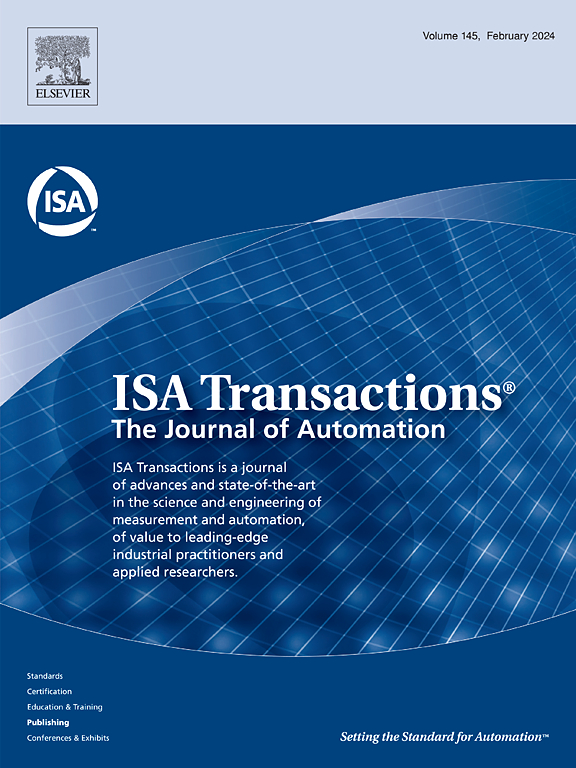Non-PDC-based local stabilization conditions of discrete-time nonhomogeneous fuzzy Markov jump systems with dynamic event-triggered mechanism
IF 6.3
2区 计算机科学
Q1 AUTOMATION & CONTROL SYSTEMS
引用次数: 0
Abstract
Centered on the non-parallel distribution compensation (non-PDC) control scheme, this paper attempts to tackle the issue of event-triggered local stabilization for nonhomogeneous Takagi–Sugeno (T-S) fuzzy Markov jump systems (FMJSs) that take mismatched fuzzy basis functions (FBFs) into consideration. With this aim, this paper presents a framework for formulating local stabilization criteria built on fuzzy Lyapunov functions, establishing criteria for defining an attraction region within an invariant ellipsoidal set and incorporating the occurrence of energy-constrained disturbances into the local control problem. In addition, the mismatch problem encountered in designing an event-triggered fuzzy controller is resolved by integrating a congruent transformation matrix that relies on mismatched fuzzy basis functions while preserving the dependence of the Lyapunov function on the original premise functions. Furthermore, to simultaneously cope with complex and diverse system parameter constraints, a systematic and less conservative method is proposed, which involves centralizing nonhomogeneous transition probabilities (TPs), transforming mismatched fuzzy basis functions into fuzzy basis function errors, and employing relaxation techniques.
具有动态事件触发机制的离散非齐次模糊马尔可夫跳变系统的非pdc局部镇定条件
本文以非并行分布补偿(non-parallel distribution compensation, non-PDC)控制方案为中心,研究了考虑不匹配模糊基函数(FBFs)的非齐次Takagi-Sugeno (T-S)模糊马尔可夫跳变系统(FMJSs)的事件触发局部镇定问题。为此,本文提出了一个框架,用于制定基于模糊Lyapunov函数的局部稳定准则,建立了在不变椭球集中定义吸引区域的准则,并将能量约束扰动的发生纳入局部控制问题。此外,在保持Lyapunov函数对原前提函数的依赖关系的同时,通过对依赖于不匹配模糊基函数的全等变换矩阵进行积分,解决了事件触发模糊控制器设计中遇到的不匹配问题。在此基础上,针对复杂多变的系统参数约束,提出了一种集中非齐次转移概率(TPs)、将不匹配模糊基函数转化为模糊基函数误差并采用松弛技术的系统、低保守性方法。
本文章由计算机程序翻译,如有差异,请以英文原文为准。
求助全文
约1分钟内获得全文
求助全文
来源期刊

ISA transactions
工程技术-工程:综合
CiteScore
11.70
自引率
12.30%
发文量
824
审稿时长
4.4 months
期刊介绍:
ISA Transactions serves as a platform for showcasing advancements in measurement and automation, catering to both industrial practitioners and applied researchers. It covers a wide array of topics within measurement, including sensors, signal processing, data analysis, and fault detection, supported by techniques such as artificial intelligence and communication systems. Automation topics encompass control strategies, modelling, system reliability, and maintenance, alongside optimization and human-machine interaction. The journal targets research and development professionals in control systems, process instrumentation, and automation from academia and industry.
 求助内容:
求助内容: 应助结果提醒方式:
应助结果提醒方式:


